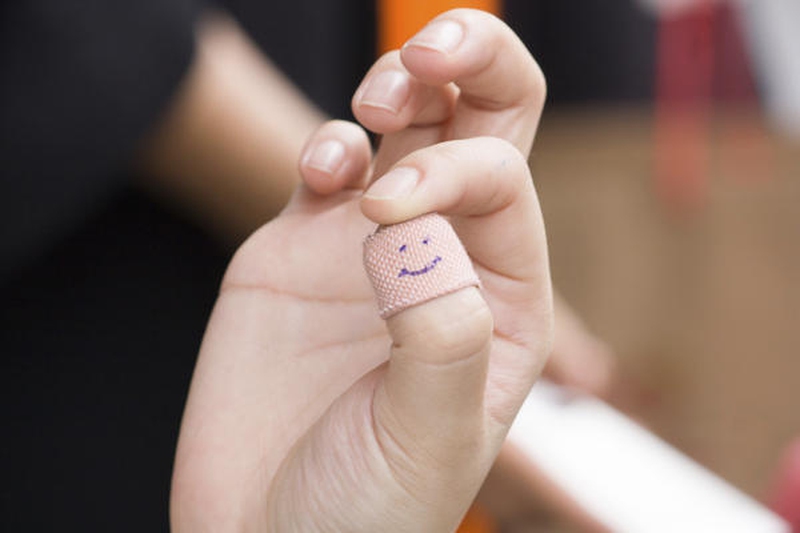A wound develops when there is an opening or break in the skin. The skin is the largest body organ and it helps protect the body from germ infections. Any opening in the skin makes you susceptible to germs entering and causing infection. Wound can be caused by an injury or an accident which result in cuts, scrapes, burns, puncture wounds or pressure sores. A wound can be jagged or smooth, or on the surface or deeper in the skin. Deep wounds often affect the muscles, tendons, nerves, ligaments, bones and blood vessels. While surface wounds heal easily, it is advisable to take proper care of any wound in order to prevent infection.

How Long Do Cuts Take to Heal?
There’s no definite answer to the question, it depends on various factors and differs from person to person. Generally, the smaller the cut is, the faster it should heal. A light cut should take about a week to heal. If the cut is deeper, say 1cm, it should take up to 2 weeks. If the cut is deeper than that, it can take much longer.
Healing Stages
Bleeding
Once you get a cut, you will start to bleed almost immediately. The clotting process sets in within the next few minutes to stop the bleeding. After the clotting process has taken place, the clot will form a scab meant to protect the underlying tissue from germs.
Protection from Infection
The immune system also kicks in to protect the cut from infection. You might experience some swelling and the area around the cut might turn pink or red. You’ll also experience some tenderness around the area. Fluid will start oozing from the wound to help clean the area.
Rebuilding and Tissue Growth
To aid in the healing process, blood vessels dilate to help bring nutrients and oxygen to the area. For the next 3 weeks, the body repairs any broken blood vessels and new tissue starts growing. The cut will start filling in with tough white fibers that help with the formation of new tissue. New skin will begin forming over the tissue. At the stage the wound will gradually get smaller.
Scarring
After a few days, the area around the cut will start feeling itchy and the scab formed around it will fall off leaving a scar. Depending on the size of the cut, the scar might fade away completely with time. So, how long do cuts take to heal? For the scar for deep cuts to fade completely, it can take as long as 2 years. In severe cases, the scar never goes away.
Factors Affecting the Healing Process
A number of factors affect the period it takes for a cut to heal. These include:
Size of the Cut
A cut will take longer to heal if it’s large and deep. Sometimes stitches might be needed to help with the healing process.
Infection
If the cut is infected, then it will take longer to heal.
Age
As you grow older, cuts tend to take longer to heal.
Location
Cuts in sensitive areas take longer to heal.
Medication
If you’re taking any medication that affects platelet function, clot formation, cell proliferation and inflammatory responses, cuts might take longer than usual to heal.
Smoking and Alcohol
How long do cuts take to heal if you smoke and drink? Studies have shown that alcohol and tobacco impair the healing process and makes you susceptible to infection.
Stress
If you are under a lot of stress you will notice that cuts will take longer to heal.
Nutrition
Healing of cuts and other wounds is greatly affected by nutrition. You need to eat a balanced diet to hasten the healing process. People with cuts that don’t heal usually require to be put on special nutrients until they’re healed.
Other Health Complications
Conditions such as diabetes and obesity can affect the healing process. Complications with blood circulation can also make cuts take longer to heal since the cut doesn’t get enough nutrients and oxygen.
Tips for Better Recovery
How long do cuts take to heal? To make the time shorter, keep the area around the cut clean and covered. Wash it wish soap and water regularly. This will help prevent infections. If the cut is deep, seek the advice of your doctor and follow their instructions to the letter. You might be required to cover the area with dressing or bandage.
Tempting as it might be, do not pick at or scratch the scab as it will interfere with the healing process. You should also avoid using any treatments that have not been recommended by your doctor.
View All Comments /Add Comment